 Ha Ji Won Offered to Lead a Mystery K-drama!
Ha Ji Won Offered to Lead a Mystery K-drama! Sungnyang nasceu menina, mas finge ser um menino para evitar de se tornar uma serva do palácio. Para se vingar de seus inimigos, ela esconde a sua verdadeira identidade, mas é envolvida em uma conspiração da Dinastia Yuan enquanto vigia o príncipe herdeiro Toguan, que foi exilado em Koryo. Através de uma série de reviravoltas, ela salva Togon, mas o seu segredo sobre ser mulher é descoberto e ela é forçada a se tornar uma serva real. Togon era o legítimo herdeiro do trono, que lhe foi roubado por seu meio-irmão, o qual lhe exilou em Koryo. Para evitar de ser assassinado, ele se faz de bobo, mas carrega consigo uma raiva feroz e tristeza. Ele finalmente retorna a Yuan e se torna imperador, e com a ajuda de Sungnyang, uma serva real, ele se torna um rei digno e luta contra aqueles que são uma ameaça para ele. (Fonte: Viki) Editar Tradução
- Português (Brasil)
- Arabic
- Русский
- Ελληνικά
- Título original: 기황후
- Também conhecido como: Hwatu , 화투 , Qi Empress , Battle of Flowers , Gi Hwang-hu , The Empress Ki , A Imperatriz Ki
- Roteirista: Jang Young Chul, Jung Kyung Soon
- Diretor: Han Hee, Lee Sung Joon
- Gêneros: Histórico, Romance, Melodrama, Político
Onde assistir Imperatriz Ki
Elenco e Créditos
- Ha Ji Won Papel Principal
- Ji Chang Wook Papel Principal
- Joo Jin Mo Papel Principal
- Baek Jin Hee Papel Principal
- Kim Ji HanTal TalPapel Secundário
- Kim Seo HyungEmpress Dowager HwangPapel Secundário
Resenhas

Para um fã da história mongol essa obra vai ser um prato cheio, pois é rica de referências a Genghis Khan, Kublai e os Mongóis, a obra também faz referências e uso da rota da seda, caminho esse aberto pelo grande Khan, quando impossível ter fazer comércio pelo mar.
A obra também tem várias referências a "Arte da Guerra" e faz uso por várias vezes de suas estratégias, seja no campo militar ou no campo da política.
O drama começa nos apresentando uma pequena escrava e sua mãe sendo levadas para Yuan como concubinas, porém nesse trajeto um jovem príncipe se depara em como em como elas são tratadas e as libertas, todas são mortas pelos homens de Yuan inclusive a mãe da menina, que da sua vida para protegê-la e ass começa a história de vingança pelo assassinos de sua mãe e pelo seu povo.
A história se inicia no período em que Goryeo é submissa a Yuan e tem que enviar tributos (pessoas) para Yuan. Percebemos de cara que quem manda em Yuan não é o Imperador e sim o regente El Temur, e num primeiro momento ele é a principal causa da maioria das desgraças que ocorrem aos 3 protagonistas. Entre conspirações, traições, luta pelo poder e guerras é que a história da que será a futura Imperatriz Ki se desenvolve.
O começo do drama é espetacular, a maneira como o drama consegue prender o espectador, todos os os conflitos e como eles são resolvidos, os personagens e até os vilões, antes de chegar no vilão principal da série é incrível, as traições por poder, as ambições dos personagens, deixa o telespectador vidrado.
O drama então que narrava apenas um acontecimento, passa a narra dois, um no palácio de Yuan (Nyang) e outro na fronteira de Yuan contra os turcos (Wang) , e não se engane, pois os drama não deixa de impressiona, seja com as batalhas e estratégias de guerra na fronteira ou com o jogo psicológico e estratégias políticas no palácio de Yuan.
Depois que esse evento chega ao fim, o drama volta a trabalhar com apenas uma narrativa e tudo acontece no palácio, foi aqui que achei que o drama começa a deixar a desejar e ficar bem cansativo, mesmo várias coisas acontecendo, ele começa a ficar menos interessante, porém depois de várias reviravoltas o drama melhorar de novo e deixa o telespectador mais animado.
Sinceramente esse e o drama que eu mais estou tento dificuldades em por no "papel" o drama é ótimo, com excelentes intrigas, disputas por poder, vilões excelentes, alguns arcos mesmo necessários deixaram a desejar como o da maldição que prometeu mortes e não deu ou como o da falsificação de títulos, que foi bem cansativo. O drama era pra ter acabado entre os episódios 38 a 39, já que todos os vilões haviam caído com excessão de um, mas era o menos, era só dá um jeito, pois depois de toda União dos "mocinhos" para vencer a tirania de El Temur, eles viraram inimigos deles mesmo e outra batalha por poder acontece durante mais 12 episódios, em resumo não aprenderam nada com o regente El Temur e a Imperatriz Tanahsiri, o drama faz do Bayan um regente quase como o El Temur e jogar outra Imperatriz como a Tanashri e tudo começa de novo, por mais rápido e interessante que essas intrigas foram, foi algo bem desnecessário.
Os personagens são incríveis e bem construídos, todos tem uma crescimento e mudanças excelentes, principalmente a Ki e o Imperador, que passa de um personagem medrosa que não sabe ler pra um personagem corajoso e que aprender a ler, tudo isso por causa da Ki.
Sobre o triângulo amoroso do drama, não foi eu que fiz, mas tem muita coisa que eu concordo aqui, então créditos a autora:
Não consigo dissociar o paralelo de que Wang Yoo representa Goryeo e o Imperador, Yuan. E quanto mais Ki se aproxima de um, mais se distancia do outro. Ao se tornar concubina do Imperador, Ki estava fazendo sua escolha e infelizmente não era guiada por amor, mas por vingança.
Ao mesmo tempo que Ki é uma personagem maravilhosa por ser enigmática, foi difícil acompanhar suas motivações. E, por isso, foi difícil entender o que o Imperador significava pra ela. Ora ela dizia que queria o bem de Goryeo, ora dizia que faria de tudo por Yuan, parecia gostar do Imperador, mas era incapaz de respeitar as vontades dele. Em um certo momento, no plot do dinheiro, ela disse ao eunuco e à criada que estava apenas usando o Imperador para o bem de Goryeo. Episódios depois ela o protege da Imperatriz Dowager e de Bayan.
E era por conta dessa dualidade da personagem que, enquanto eu assistia o drama, eu tinha certeza de que ela não amava o Imperador verdadeiramente e que ele era apenas um meio para que ela conseguisse o que queria.
Pra mim o amor dela pelo Imperador parecia mais com um sentimento de cuidado cheio de afeto. Ela cuidava e se preocupava com ele, mas não o procurava para pedir conselhos, não confiava nele para contar seus problemas nem mesmo deixava de agir se sua ação fosse magoa-lo. Me dava a angústia ver quantas vezes mais ela iria manipula-lo para que pudesse alcançar seus objetivos. E isso me fez sentir uma raiva enorme dela em diversos momentos.
Já o Rei foi seu primeiro amor, foi por quem ela prometeu que lutaria, é o homem forte, corajoso, inteligente e honrado por quem ela se apaixonou perdidamente. O Imperador foi aquele que a traiu, que não parecia ter nada a lhe oferecer, mas que com o tempo mostrou que podia fazê-la feliz e dar a ela um lugar para chamar de lar. Ela ficou tocada com a gentileza do imperador e com a vida que construiu com ele, mas esse afeto não foi e não seria capaz de fazê-la desistir dos seus objetivos.
Empress Ki é baseado em fatos reais e conta grande parte da história da imperatriz Qi que foi uma das principais imperatrizes de Toghon Temur da dinastia Yuan ela era de uma família aristocrática de Goryeo, atual Coréia.

Não assista pelo romance!
Empress Ki foi um dorama que achei que quando começasse certamente não iria completar por ter muitos episódios. Contudo, acabei terminando porque você não consegue parar, tem sempre muito acontecendo e sua curiosidade te leva a continuar. Mas reitero, quem começar a ver pelo romance pode se decepcionar, parece que você está sempre esperando por algo que não é entregue, além de não ter um casal concreto (mesmo com um deles sendo o "endgame", meu favorito aliás). Caso queira assistir uma história de uma mulher forte e inteligente, esse é um ótimo dorama, mas não crie expectativas românticas!
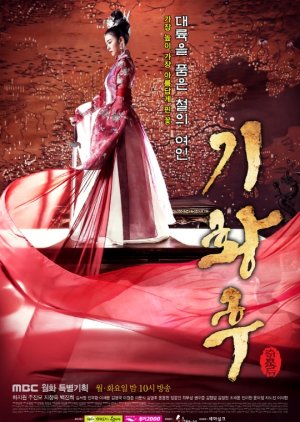










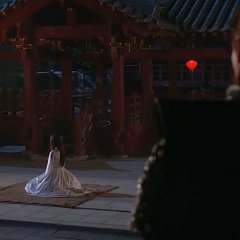
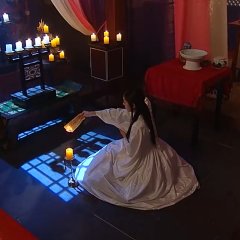
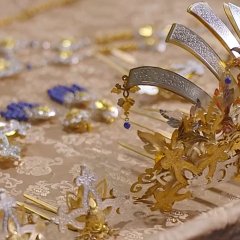
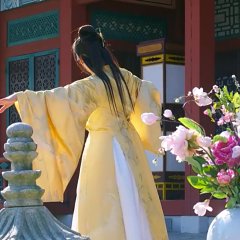
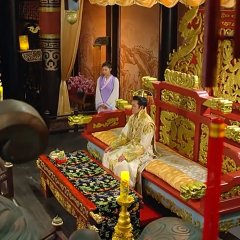
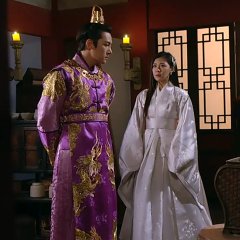
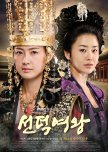


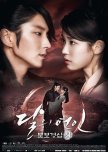
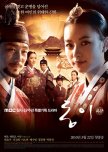








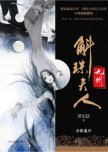


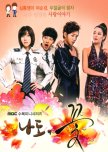

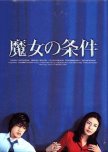

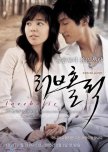

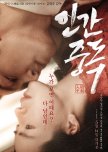
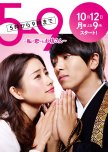

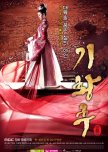















Comentários